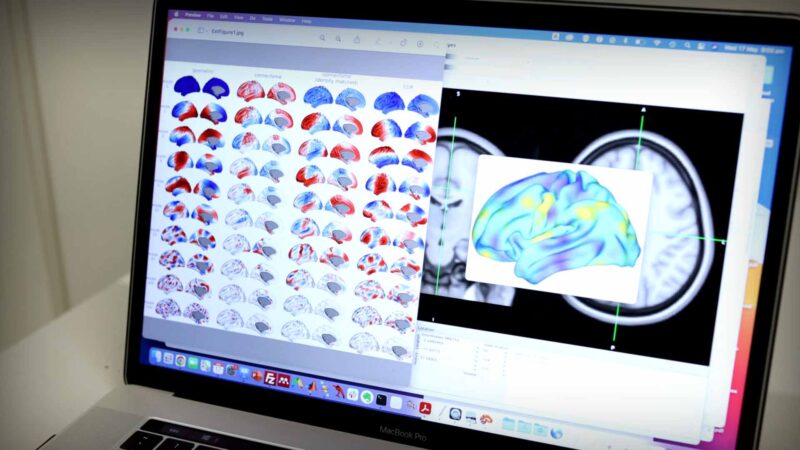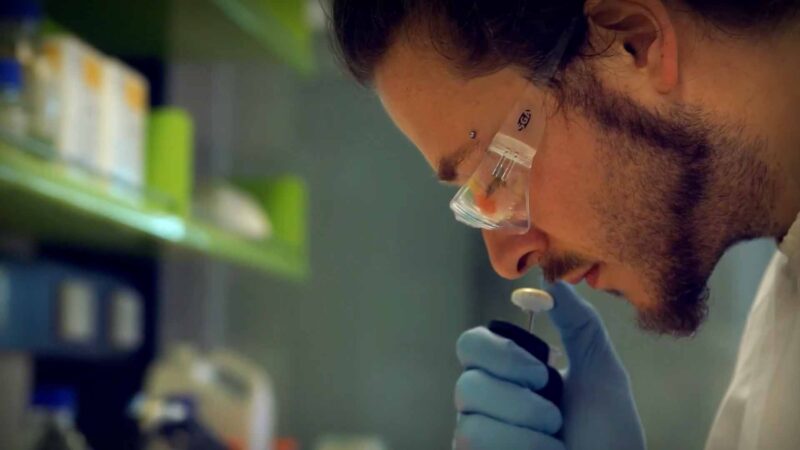In 2023, there are a number of changes occurring in dental services including the start of a new Senate inquiry and new registered nurses in residential aged care. Yet in the meantime there are gaps and delays in dental and oral health interventions for elderly Australians, unless training is more widely deployed.
Dental and oral health are important for the elderly for a number of important reasons:
- Maintaining overall health: Good dental and oral health are important for maintaining overall health in the elderly. Poor oral health can contribute to a range of health issues, including cardiovascular disease, diabetes, and respiratory problems.
- Nutrition: Maintaining good oral health is essential for proper nutrition, particularly for the elderly who may have difficulty eating due to tooth decay or missing teeth. Poor oral health can lead to malnutrition, which can exacerbate existing health problems.
- Pain management: Dental problems such as cavities, gum disease, and tooth infections can cause pain and discomfort, which can be particularly challenging for the elderly. Treating dental problems promptly can help manage pain and improve quality of life.
- Socialisation: Maintaining good oral health is important for socialisation and maintaining a positive self-image. Missing teeth or other dental problems can cause embarrassment and social isolation, which can negatively impact mental health and well-being.
- Preventing infection: Good oral hygiene is essential for preventing infection, particularly for the elderly who may be more susceptible to infections due to a weakened immune system. Poor oral health can contribute to infections such as pneumonia, which can be particularly dangerous for the elderly.
Overall, maintaining good dental and oral health is important for the elderly to maintain overall health, manage pain, improve nutrition, socialise, and prevent infections. Regular dental check-ups and good oral hygiene practices are essential for achieving and maintaining good oral health.
Australian Health Journal spoke to Leonie Short, a dental therapist working for Seniors Dental Care Australia on what she considers are dental and oral health priorities for the elderly, based on her work in the aged, home and disability sectors.
She passes her thoughts on the repetitive findings likely identified by the new Senate Select Committee into the Provision of and Access to Dental Services in Australia. She sees the need for funding a Seniors dental benefit scheme as the higher priority instead.
Leonie also speaks to the upcoming requirement for residential aged care having a registered nurse on site. There is a gap in the knowledge and evidenced based oral health care in residential aged care, for even cleaning of teeth or dentures. This training is provided by her organisation to nurses, support workers and carers.
Leonie recognises in Australian society, more elderly people are retaining their natural teeth, with crowns, implants and partial dentures and can be very complex to manage. However in her 9 years working in aged care settings, she clearly sees a lack of oral health care training.
You Might also like
-
Landmark brain shape study
For over a century, researchers have thought that the patterns of brain activity that define our experiences, hopes and dreams are determined by how different brain regions communicate with each other through a complex web of trillions of cellular connections.
Now, a Monash University Turner Institute for Brain and Mental Health-led study has examined more than 10,000 different maps of human brain activity and found that the overall shape of a person’s brain exerts a far greater influence on how we think, feel and behave than its intricate neuronal connectivity.
-
SAHMRI Celebrates 10 Years of Research
SAHMRI represents an exciting and unique statewide concept, bringing together basic and translational research, South Australia’s three universities and the health system. SAHMRI works in collaboration with its partners to provide a clear focal point for health and medical research, including paving the way for new partnerships, innovative research projects and improved health outcomes.
Executive Director, Professor Maria Makrides spoke to Australian Health Journal about 3 achievements in the past 10 years that have had significant impact
International leadership breakthroughs in leukaemia research
Culturally appropriate Indigenous health research and clinical care
Omega 3 fatty acids as a preterm birth prevention -
Nuclear medicine funding a win for men with prostate cancer
Australian men with higher risk prostate cancer now have access to a nuclear medicine scan to help detect and treat metastatic disease, after it was listed on the Medical Benefits Schedule (MBS) from 1st July 2022.
In 2021 over 18,000 Australian men were diagnosed with prostate cancer, resulting in over 3,000 lives being lost – and making prostate cancer Australia’s second most common cause of cancer death in men.
Australian Health Journal spoke with AANMS President Associate Professor Sze Ting Lee and Dr Geoff Schembri on the MBS listing and the efforts to get it listed.



